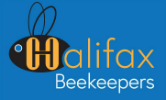We get plenty of enquiries from people considering taking up this fascinating hobby, but find there are quite a few misconceptions out there on what beekeeping involves and its place in the environment. We encourage you to read and consider the following before proceeding.
Keeping bees can be challenging but fascinating. Their behaviour both as individual insects and especially as a colony or super-organism can never be completely predicted and you constantly learn about them. If you are interested in biology and animal behaviour, the hobby provides the opportunity for life-long learning. The products of a hive are of course fresh local honey, as well as beeswax and propolis.
Halifax Beekeepers Association Provides support and training to local beekeepers, is non-profit-making and has charitable status, and is itself affiliated to its parent associations of Yorkshire and British Beekeepers. Becoming a member enables learning from others as well as bringing social benefits. We have regular educational meetings in winter, apiary visits in summer, an annual barbecue and a biennial auction of surplus equipment.
Before you embark on beekeeping or indeed even subscribe to a course, you should consider the following issues and frequently asked questions.
Are there strong environmental reasons to protect and encourage honey bees, as valuable pollinators?
Honey bees are not actually in decline. They indeed present a threat to other native pollinating insects, such as solitary and bumble bees and butterflies, if there are too many in a locality, as they compete for forage from available nectar-bearing flowers. It is estimated that there are now 275,000 managed colonies in the UK, compared with 150,000 in 2007.
Honey bees come out of winter in much larger colonies than solitary or bumblebees and by summer a hive may contain over 60,000 bees. They are only really needed to pollinate large areas of mono-agriculture such as fields of oilseed rape or apple orchards, which we do not have in Calderdale. Their favourite late season forage in our area is actually Himalayan Balsam, considered an alien invasive species along our canals and riverbanks, but which our bees enthusiastically pollinate. If your priority is to protect the environment, you might be better planting and maintaining forage for other native pollinators, such as meadows and hedgerows.
Can you make much money from beekeeping?
Most beekeepers only keep a few hives and for them it is actually a fairly expensive hobby. A basic new hive will cost over £300 and your first colony from a reputable supplier will be around £200. On top of that are the costs of protective clothing and other equipment. Beekeeping only becomes profitable on a much larger scale, where bee farmers may have hundreds of hives. You will barely break even if you sell your honey at £6 per pound, whilst supermarkets sell imported honey for less than £1. Your customers will only be a discerning minority who value the unique and complex flavours of local honey. You are much more likely to find yourself giving it away to grateful friends and family.
Can I keep bees in my garden?
Whilst some people manage it, this is something we generally discourage. Most modern domestic gardens are too small. Bees usually mind their own business when out foraging, but close to their hive they can be aggressive in defending it. Your hives will need to be well away from neighbours and passers-by, whilst horse riders and dog walkers are particularly at risk as their animals seem to upset the bees. Bees may become more irritable in certain conditions and may prevent normal gardening and socialising outdoors.
Will I get stung?
All beekeepers get stung from time to time, despite all their protective clothing, and honey bees are particularly good at stinging to protect themselves and their hives. The result is usually an unpleasant inflamed swelling which lasts several days, but can of course be much more serious for those who develop a severe allergy.
Is keeping bees time-consuming and demanding?
You need to be prepared to monitor your hives on a weekly basis from May to September, to prevent swarming and to check for diseases. After this there is quite a lot of work in extracting the honey crop and preparing your bees for winter. You also need to be prepared for some heavy lifting as boxes full of honey can weigh 20 to 40 pounds.
Is local honey good for your health and does it help against hay fever?
Honey is basically a solution of simple sugars, especially glucose and fructose. Though fresh local honey may contain particles of pollen, these are in small amounts. Some people believe that local honey helps hay fever but there is no scientific evidence for this, nor any logical reason why it might do so; hay fever is due to pollen from wind pollinated grasses and trees whilst honey bees only collect if from flowers. Local honey should really only be valued for its more complex flavours, as it contains nectar from a wide variety of flowers from across the whole season.
Do I need to do a course?
Halifax Beekeepers run a course every spring and we encourage this way of becoming a beekeeper. After the theory part you will be offered practical sessions and ongoing mentoring from an experienced member until you become confident
Some people will prefer to teach themselves however and you may want to look at one of the recommended books for our beginners course which are The BBKA Guide to beekeeping by Davis and Cullum Kenyon or the Haynes Bee Manual by Waring. There are videos inline and we recommend those by Norfolk Honey Company.

